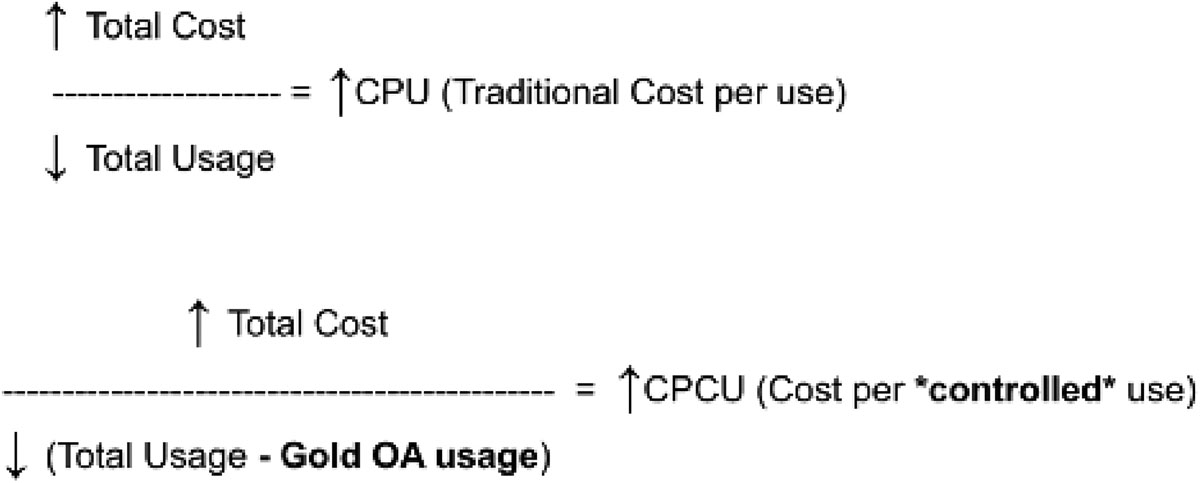Levine-Clark presented data from a 2020 study comparing publishing patterns at two institutions. The first institution is one of the largest research libraries in North America and publishes about 13,000 articles every year. Its publishing focuses primarily on medicine, health sciences, and STEM. The other institution is a smaller research library, publishing fewer articles than the large research library. Its publishing focuses on social sciences and humanities. The data that Levine-Clark highlighted included publishers and journals with which the institutions’ authors publish, disciplines in which authors publish, article processing charge (APC) data, the recording and presentation of corresponding author data, levels of Open Access (OA) publishing, and types of OA publishing. Levine-Clark also described data trends at both institutions that could be used to formulate informed decisions about transformative agreements.
McDonald used data and findings from a study of twenty institutions and seven publishers to determine if the information currently available to institutions is robust enough to make informed decisions about transformative agreements. Questions from the study focused on evaluating articles categorized as having corresponding authors, the value of APCs covered by agreements, and the institutional costs of Big Deals versus APCs covered by transformative agreements. To conduct the study, McDonald collected a large data sample from Dimensions, Delta Think, and COUNTER. McDonald explained the data correlations between the number of publications produced by an institution and the cost of accessing the same content with a Big Deal purchase versus entering into a transformative agreement with APC waivers. McDonald emphasized that when evaluating the value of Big Deals and transformative agreements, it is worthwhile to vary the data being examined. His conclusions highlighted the challenges institutions will encounter when evaluating the value of transformative agreements due to variances in publisher data and a lack of data standardization.
Price presented on the evaluation of an existing read and publish agreement between the Statewide California Electronic Library Consortium (SCELC) and Cambridge University Press (CUP) that began in 2021. The agreement includes thirteen institutions, covering APC charges for corresponding authors across five article types in hybrid and gold OA journals. The study was conducted to determine the amount of open publication the agreement provided during its first year, how cost per controlled use changed during the first year, and how publish and read data can be evaluated together. The data from both Dimensions and the publishers demonstrated that for all institutions publishing hybrid and gold OA articles before the agreement, the number of open corresponding author articles published under the agreement increased.
Price presented SCELC’s development of a “read cost per controlled use” (RCPCU) metric to measure the value of its transformative agreement with CUP. RCPCU combines both publish and read value. Publish value is calculated as actual APC avoidance. To arrive at the read value, SCELC adapted the traditional cost per use (CPU) formula to calculate a “cost per controlled use” (CPCU) metric1. SCELC calculates CPCU by subtracting freely available publisher hosted gold and hybrid OA article usage from the total usage of the formula’s denominator (see Figure 1).
The “Read cost per controlled use” formula is comprised of multiple parts: 1) “read cost” is derived by subtracting APC avoidance from Big Deal Spend; 2) “read cost” values become the CPCU and are used as the numerator in the RCPCU equation. SCELC then compared CPCU values with RCPCU values. SCELC suggests that this approach, which takes the publishing benefit into account, resulted in a more holistic and accurate evaluation of its transformative agreement with CUP.
Price summarized conclusions for all the studies2 presented: 1) background publication data is crucial; 2) broad comparisons are very challenging due to limitations in general data sources; 3) before and after data are crucial for meaningful evaluation; and 4) publication and enhanced usage data can be combined to determine value.
Contributor Notes
Michael Levine-Clark is Dean of Libraries, University of Denver, Denver, Colorado.
John McDonald is Director of Analytics & Assessment, EBSCO, Ipswich, Massachusetts.
Jason S. Price, PhD, is Research & Scholarly Communication Director, SCELC Library Consortium, North Hollywood, California.
Heather Staines is Director of Community Engagement & Senior Consultant, Delta Think, Philadelphia, Pennsylvania.
Dawn Rapoza is Librarian, U.S. Serials and Government Documents, Library of Congress, Washington, D.C.
- Heather Staines, “How Does the Growth of a Particular Publisher’s Open Access Content Factor Into the Relative Value of a Big Deal? Part 2: the Findings,” Delta Think News & Views (May 16, 2022), accessed November 30, 2022, https://deltathink.com/news-views-how-does-the-growth-of-a-particular-publishers-open-access-content-factor-into-the-relative-value-of-a-big-deal-part-2-the-findings/. ⮭
- Heather Staines, “The Impact of Transformative Agreements on the Value of the Big Deal, Part 1: Methodology,” Delta Think News & Views (April 18, 2022), accessed November 30, 2022, https://deltathink.com/news-views-the-impact-of-transformative-agreements-on-the-value-of-the-big-deal-part-1-methodology/. ⮭

